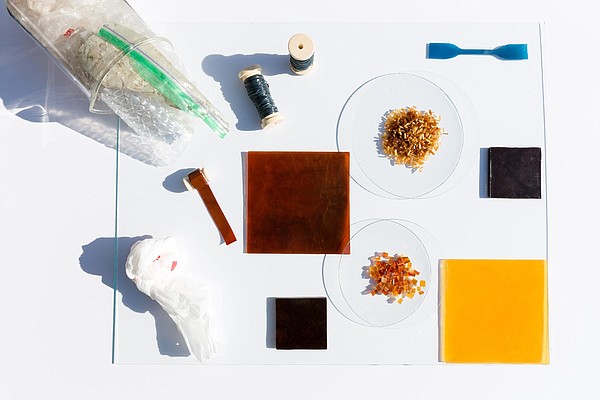Novoloop announced Feb. 23 its XIRC, a thermoplastic polyurethane that is created using post-consumer polyethylene waste. Photo: Novoloop
SUSTAINABILITY
Novoloop Announces Groundbreaking Progress in Plastic-Waste Upcycling
Formerly known as BioCellection, Menlo Park, Calif.’s Novoloop has announced an advancement in sustainable manufacturing with the launch of XIRC. A thermoplastic polyurethane that is created using post-consumer polyethylene waste, this product solves the longstanding issue of the inability of certain plastics to be upcycled into other goods at the end of their lifecycle, ultimately reducing waste and carbon emissions.
The company sources its carbon-rich polyethylene from the City of San Jose and waste processor GreenWaste Recovery Inc. in addition to a partner located in Southern California. These resources afford access to the household waste that feeds the Novoloop mission.
“Novoloop’s mission is to create sustainable materials for a changing planet,” the company’s co-founder and chief executive officer, Miranda Wang, said in a statement. “We are on a path to reinvent how performance materials are manufactured in a world under threat by plastic pollution, and we expect to mitigate up to 685 million metric tons of CO2 annually.”
Through its proprietary Accelerated Thermal Oxidative Decomposition chemical-recycling platform, Novoloop has unlocked the door to processing the plastics least likely to be recycled, such as plastic shopping bags and packaging films. When surveyed by a third party, the ATOD process was found to reduce 45 percent of carbon emissions compared with existing thermoplastic-polyurethane production practices.
The end result, XIRC, is a product that can be used to create materials that can be used in the footwear, sporting-goods and automotive industries. XIRC is a customizable polyester-based TPU created using 50 percent post-consumer polyethylene. This more-sustainable product performs as well as commercial, virgin-grade TPUs, which are an issue in green manufacturing as they contribute to plastic waste and increase a brand’s carbon footprint.






















